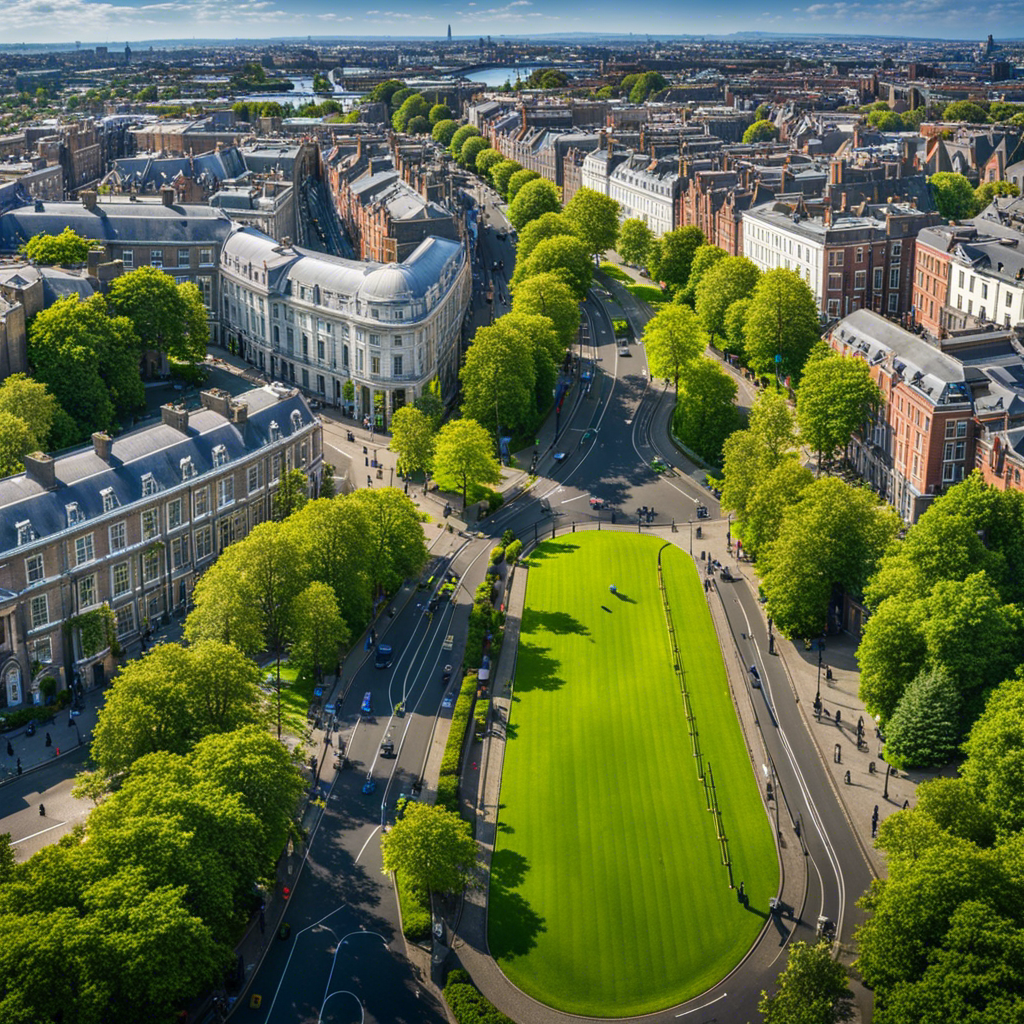An ambitious objective targeting climate neutrality for Dublin by 2030 has been established by the city’s council. This involves reducing carbon emissions by 50%, expanding public transportation and measures for ‘active travel’, deterring through traffic from city streets, and increasing green zones to combat air pollution.
On Wednesday, climate action plan number two was unveiled detailing the roadmap for the remaining of the decade. It underscores the vital need to ready both the city and its residents for the acknowledged ramifications of climate change, namely flooding, sea level increases, intense weather patterns, and periods of drought.
In addition, the document presents the methods through which DCC intends to curtail emissions, aiding the worldwide thrust to restrict warming to less than 1.5 degrees above levels in the pre-industrial era.
Lord Mayor Daithí De Róiste conveyed at a gathering in Dublin’s Mansion House that the strategy revolves around fostering resilience within communities. He claimed that the plan facilitates collaborative work towards forming climate solutions rooted in a common vision of a resilient Dublin that leads the way.
He emphasised that this aim is far from being obtained by a mere handful of individuals, pointing to the necessity of communal reliance for the plan’s success.
Upon achieving climate neutrality, Eamon Ryan, Minister for Climate, predicts Dublin’s enhancement as a habitable city. The strategy’s critical elements include expanded usage of renewable energies and enhancing public transport, including ‘active travel’.
He envisaged that, subject to planning approval, links to Tallaght via metro would bring about significant transformation. With Dart Plus increase in capacity would be tripled and light rail destined for Finglas along with other new paths is in planning stages. He envisions BusConnects to be a cornerstone in the city’s decarbonising efforts.
By 2030, the availability of 3 gigawatts of offshore wind energy would supply the city’s power needs.
According to Ryan, achieving the climate neutrality goal is feasible notwithstanding previous nation-wide failures in fulfilling climate targets. He expressed the betterment of the city with more public transport and increased reliance on renewable energy, in lieu of importing costly gas from Russia.
Cllr Claire Byrne, the leader of the DCC climate action, energy and environment committee, stated, “Our path forward may have challenges and frustrations, but the rewards are boundless. Dublin City Council is eager to collaborate with everyone to transform our city into a healthier, cleaner, and greener place to live.”
“As a parent, it is my desire that my children reside in an eco-friendly city with a clean environment. Wishing for them to enjoy clean air and swim in the unpolluted waters of the Liffey, while also living in the city because of its safety. Moreover, I wish for them to roam freely in the city,” she expressed.
Referring to the current urban conditions, Cllr Byrne stated, “Navigating through the city can be quite nerve-racking. Can you even fathom a child’s experience in such conditions?”
Other noteworthy additions include:
– Tune into our Inside Politics Podcast for the freshest insights and discussions.
– Register for prompt alerts to get the top news, analysis and opinions directly on your mobile.
– Keep tabs on The Irish Times on WhatsApp for the latest updates.

